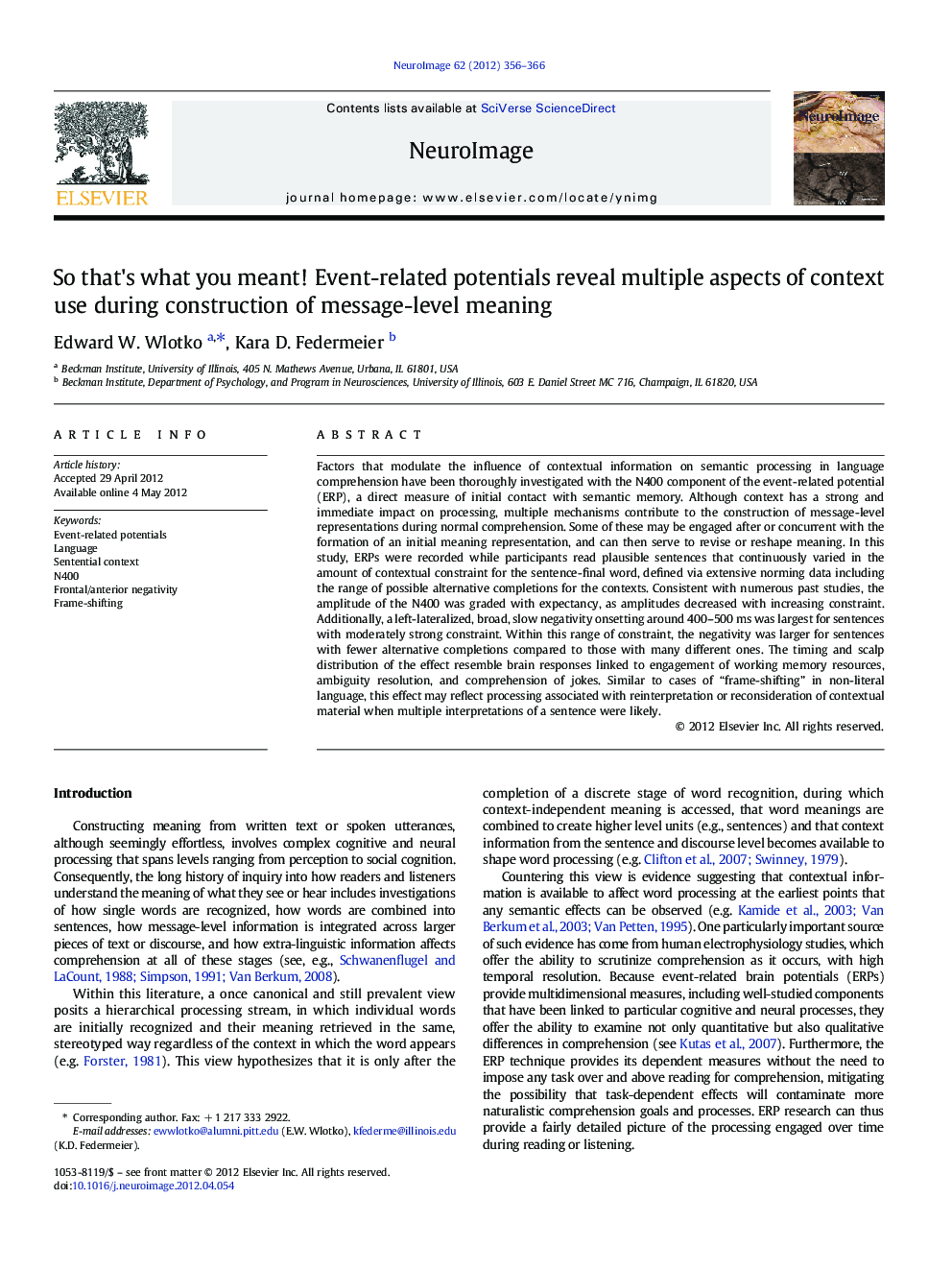| Article ID | Journal | Published Year | Pages | File Type |
|---|---|---|---|---|
| 6031898 | NeuroImage | 2012 | 11 Pages |
Factors that modulate the influence of contextual information on semantic processing in language comprehension have been thoroughly investigated with the N400 component of the event-related potential (ERP), a direct measure of initial contact with semantic memory. Although context has a strong and immediate impact on processing, multiple mechanisms contribute to the construction of message-level representations during normal comprehension. Some of these may be engaged after or concurrent with the formation of an initial meaning representation, and can then serve to revise or reshape meaning. In this study, ERPs were recorded while participants read plausible sentences that continuously varied in the amount of contextual constraint for the sentence-final word, defined via extensive norming data including the range of possible alternative completions for the contexts. Consistent with numerous past studies, the amplitude of the N400 was graded with expectancy, as amplitudes decreased with increasing constraint. Additionally, a left-lateralized, broad, slow negativity onsetting around 400-500Â ms was largest for sentences with moderately strong constraint. Within this range of constraint, the negativity was larger for sentences with fewer alternative completions compared to those with many different ones. The timing and scalp distribution of the effect resemble brain responses linked to engagement of working memory resources, ambiguity resolution, and comprehension of jokes. Similar to cases of “frame-shifting” in non-literal language, this effect may reflect processing associated with reinterpretation or reconsideration of contextual material when multiple interpretations of a sentence were likely.
⺠A continuous variation of contextual strength in sentence comprehension. ⺠Multiple neural mechanisms are engaged for comprehension. ⺠Event-related potentials (ERP) reveal initial and later stages of semantic processing. ⺠A left frontal negativity was enhanced for sentences of moderately strong constraint. ⺠The frontal negativity reflects reinterpretation or reconsideration of prior context.
